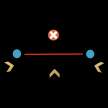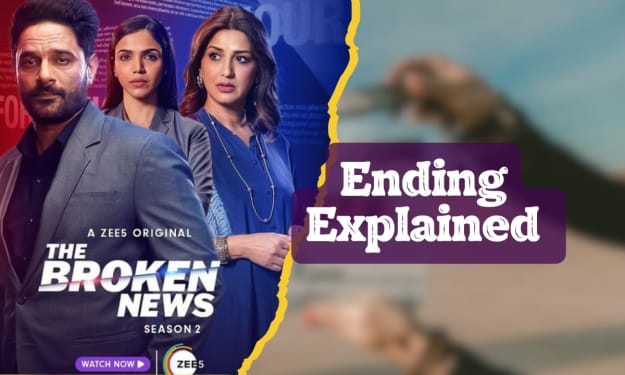Introduction
I was expecting this to be a film that aimed to glorify a nation and treat the soldiers within as heroes for dying in battle for their country. What I ended up watching was something that was very different, The Eight Hundred.
Narrative and Characters
If I were to describe this film, I would say it is a combination of both 300 and Dunkirk, which is an odd combination, so let me explain. The premise is quite simple, much like the story of the 300, this is based on a true story about a group of soldiers holding back Japanese troops at the bridge that leads to the colonized portion of Shanghai. They cannot retreat, because if they do, the retreating soldiers would open up the civilian area to war, and the troops numbers are too few to launch an attack on the Japanese. The only thing they can do is fight for as long as possible so that they can inspire the rest of the country and their allies to help.
We follow the everyman through this event, and because all of it takes place in the same location, rather than thinking of the soldiers as individuals, they are a single unit with a simple goal, to survive. It takes the anonymous nature of the characters in Dunkirk, and fully realizes the concept. What I mean by the anonymous nature of the characters is that Dunkirk has four points of view, the soldier, the commander, the civilian and the pilot, covering the ground, the seas, and the skies respectively. None of the characters stand out as individuals, because they all blend together to become a group in the context of the film.
The negative of this is without a set of core characters to focus on there is no room for deep character development or progression. As a result what we have are the basic archetypes, the patriot, the coward etc. covering the very basics of character growth. For example, the coward choosing to stay behind to fight. The benefit is that we can focus on the event from a neutral point of view instead of a fixed point of view, and this allows the film to explore the event. It does not pick sides, it simply tries to show the events for what they are.
Visuals and Music
There is a quote by G.K. Chesterton, “The true soldier fights not because he hates what is in front of him, but because he loves what is behind him.” This film is a fantastic representation of this quote. The soldiers in this film do not fight out of hate, instead it is because there is someone or something that they all love. For some it is their country, for some, their home, and others loved ones they may never see again. The soldiers are held up in a warehouse and behind them, across the river is the civilian area, a physical representation of what the soldiers are trying to protect. In front of them are the horrors they must face.
From a visual point of view, the film is not afraid to show things that are harrowing, and is also not afraid to kill off characters in an unceremonious way, as is the nature of death in war. It is all matter of fact, making the ordeal that much more visceral. It also shows how people can devolve in a life or death situation, while also showing how they can rise to the occasion to protect their brothers in arms. Beyond that the scale of the film is quite impressive as the creators managed to merge practical effects, which are quite impressive in their own right, and CGI in a seamless way making the film that much more immersive.
The usage of music in the film is well executed, what is done even better is the absence of it all together, where we are left to marinate on what is happening alongside the soldiers, whether it be in the middle of a battle or recovering from a battle. The only moment in the film when the music truly imposes itself to the point of being overbearing is during the finale, where the tone of the score changes significantly from what it has been up until that point. Combine this shift with the change in visuals we see, it is as if it is from a completely different film to the one we have been watching so far.
The Message
I am of two minds about the finale of the film, on the one hand, it reverts to the standard blockbuster norms. The epic slow-motion, and the bombastic music coming to the forefront, attempting to squeeze as much emotion as possible from this moment. This is the closest the film comes to celebrating the sacrifice of the soldiers. However, simultaneously, I would argue that it works for what the film has been up until this point in time, and what the film, at its core, wants to say.
Whether it be the commander wanting to make sure the strength of his people is untarnished, the politicians dictating the direction of the war, the Japanese commander wanting to defend his pride against a worthy opponent, the soldier who rises to the occasion, the deserter that volunteers to be a decoy, or the civilians doing their best to support the soldiers, the film never takes any sides, and with so many perspectives to cover it is difficult to remain unbiased. Yet this ending is a great visual synthesis of where the film says the answer that leads to the end of war could be, not in one of the extremes of the various ideologies, but somewhere in the middle, because if this film shows anything, it is that it hates war as a concept, and what truly matters is survival, and living, not glory in death.
Conclusion
This is not a film about kings or individuals that overcame the odds, it is about ordinary people that, because of circumstance, have all been thrust into this situation, and in the eyes of history ordinary is anonymous. This is a film that wonderfully shows how their actions can reverberate across time, and why it is important to remember what has come before.
About the Creator
BoblobV2
Writing about anime, and anything else I find interesting.






Comments
There are no comments for this story
Be the first to respond and start the conversation.